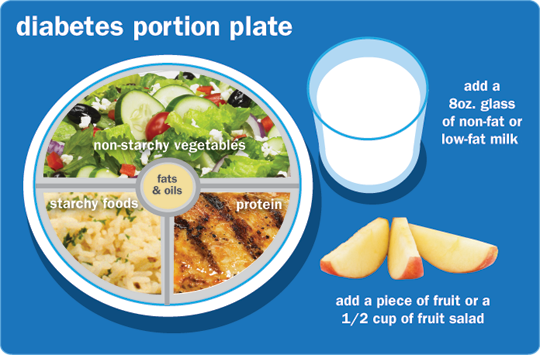Type 2 diabetes is on the rise around the world however, there is much you can do to improve your life if you are diagnosed. Fortunately, the solution to type-2 diabetes doesn’t have to be found in insulin injections. A number of people are finding long term solutions through lifestyle changes.
“Basic principles of good health like eating right, exercising regularly, and maintaining a healthy weight can be as effective as medicine in the management of type 2 diabetes for most people,” says dietitian Sue McLaughlin, RD, diabetes educator and president of healthcare and education for the American Diabetes Association. That’s backed up by the Look AHEAD study, a large clinical trial funded by the National Institutes of Health and the Centers for Disease Control and Prevention. The researchers found that over a four-year period, changes like eating a healthier diet and exercising more led to weight loss and improved diabetes control in 5000 overweight or obese participants with type 2 diabetes.
If you feel ready to make some positive lifestyle changes, below are 5 tips to help get you started.
You Are What You Eat
Keeping a watchful eye on your diet is the first step to managing type 2 diabetes. The healthiest diet for people diagnosed with type 2 diabetes is a low fat, high fiber diet consisting of fruits, vegetables and whole grains. Be especially mindful of foods that are high on the glycemic index (GI), a system that ranks foods according to how they affect glucose levels. High-GI foods include white breads, white rice, and soda.

Avoid fast food at all costs as well. In a 15-year study of 3,000 young adults, those who ate fast food more than twice a week developed insulin resistance (a diabetes risk factor) at twice the rate of people who weren’t fast food junkies. Plus, fast food is loaded with saturated fats, trans fats, and sodium, which can be especially unhealthy for people with type 2 diabetes.
Lose Weight
Studies find that losing just 10 to 15 pounds can lower glucose levels in people with type 2 diabetes. Managing your weight is critical to managing type 2 diabetes and where your fat is distributed can also affect your diabetes risk and management.

People who carry most of their fat in their belly (apple shape) are more prone to type 2 diabetes than those with fat mostly in the thighs, hips, and buttocks (pear shape). A woman whose waist measures more than 35 inches and a man with a 40-inch waist need to lose weight for good diabetes management, according to experts who further note that adding a healthy diet and regular aerobic exercise will help shed weight in the stomach area.
Exercise Regularly
Even if losing weight is a hard fought and lost battle for you, maintaining a healthy level of exercise can make a big difference.
“When you do physical activity, such as walking, your muscle contractions push glucose out of your blood into your cells,” explains McLaughlin, resulting in better blood sugar levels.

More intense exercise is even better. In one study of vigorous exercise and type 2 diabetes, women who walked quickly gained more protection from type 2 diabetes than those who walked at a more leisurely pace. Regular weight-lifting sessions can also help regulate blood sugar levels.
Manage Sleep Apnea

A number of overweight people with type 2 diabetes also have sleep apnea, a condition in which a person stops breathing temporarily while sleeping.
People with type 2 diabetes and sleep apnea are at higher risk of death from heart attack and stroke. According to one study, their blood sugar levels can fluctuate more dramatically while sleeping than in those who have type 2 diabetes, but not sleep apnea, according to one study. These fluctuations have been linked to a higher risk of diabetic complications.
Severe cases of sleep apnea may need to be treated with surgery or by wearing a special device while sleeping, but less severe cases can be managed by losing weight. Talk to your doctor if you suspect you may have sleep apnea — loud snoring is one sign. A special sleep test can diagnose sleep apnea.
Supplements
FENFUROTM is a group of furostanolic saponins, derived from fenugreek seeds (Trigonellafoenumgraecum) by innovative process. One of the most important properties of fenugreek seed extract is blood sugar level (BSL) lowering property. Various studies have investigated blood cholesterol-lowering and blood glucose lowering properties of fenugreek seed extract. FENFURO contains a rich variety of saponins and flavonoids. All of these substances are known to lower blood lipid levels and play valuable role in glucose regulation.
Fenfuro is protected by six international patents and is clinically evaluated with proven efficacy and safety.
The statement and product have not been evaluated by the FDA to diagnose, treat, cure or prevent any disease.



 With more than 62 million individuals currently diagnosed with the disease,
With more than 62 million individuals currently diagnosed with the disease, 


 Many people avoid the long-term problems of diabetes by taking good care of themselves. Work with your health care team to reach your ABC goals (A1C, Blood Pressure, Cholesterol): Use this self-care plan.
Many people avoid the long-term problems of diabetes by taking good care of themselves. Work with your health care team to reach your ABC goals (A1C, Blood Pressure, Cholesterol): Use this self-care plan.































